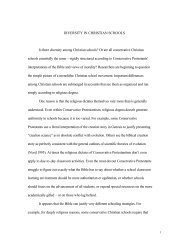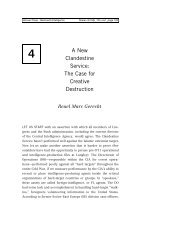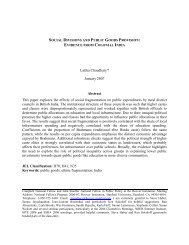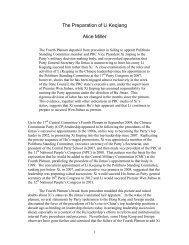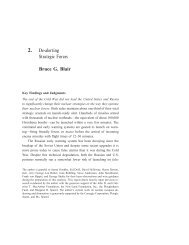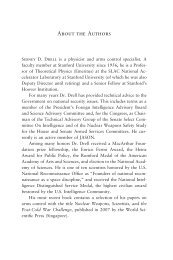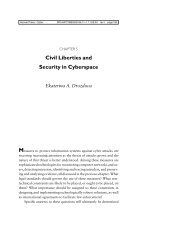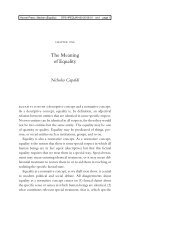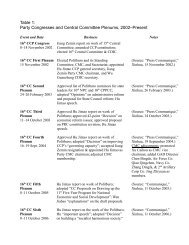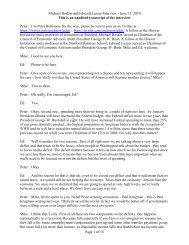On Really Existing Anti-Americanism - Hoover Institution
On Really Existing Anti-Americanism - Hoover Institution
On Really Existing Anti-Americanism - Hoover Institution
You also want an ePaper? Increase the reach of your titles
YUMPU automatically turns print PDFs into web optimized ePapers that Google loves.
<strong>Hoover</strong> Classics : Berman hcberman ch3 Mp_87 rev0 page 87<br />
<strong>Really</strong> <strong>Existing</strong> <strong>Anti</strong>-<strong>Americanism</strong><br />
87<br />
dain for the democratic soldier, with his childish scrawl<br />
and bad manners. The passages show Brecht working<br />
toward a rapprochement with the liberal institutions of<br />
England and the emancipatory character of bourgeois,<br />
which is to say, capitalist, life: for this same substance,<br />
shifted to the United States, today’s anti-American only<br />
has contempt.<br />
anti-americanism: a european ideology<br />
Is anti-<strong>Americanism</strong> an endogenous formation, the consequence<br />
of internal European cultural processes, or<br />
does it reflect genuine differences between Europe and<br />
the United States? This chapter began exploring the first<br />
model, according to which the enemy is understood to<br />
be a retroactive construction, necessary for the constitution<br />
of an identity. It followed that anti-<strong>Americanism</strong><br />
had little to do with reality, or with real conflicts, and<br />
much more to do with cultural traditions and stereotypes.<br />
Yet Brecht’s reflections of 1940 suggest an alternative<br />
account. At a particular point in history, he was<br />
able to shift loyalties from one culture to another, from<br />
continental ideologies of dogma to British liberalism<br />
and liberty. For all his Central European illiberalism<br />
(which is shared by today’s European anti-American<br />
movements), he nonetheless imagined a personal rapprochement<br />
with the enemy, the culture across the<br />
channel. Brecht, the son of Augsburg, accepted Marlborough’s<br />
victory at Blenheim and all that that implied—parliamentary<br />
ascendancy, commercial culture,<br />
military prowess as a progressive force, and, ultimately,



